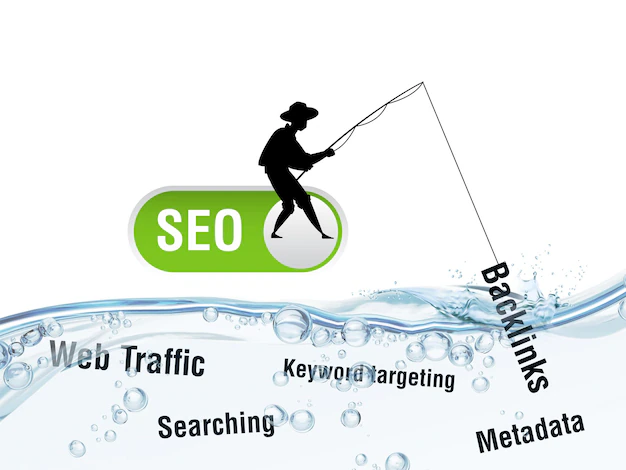Winning At SEO: How To Use Sports Keywords Effectively?
12 December 2023
5 Mins Read

toc impalement
In today’s hyper-connected world, a strong online presence is an absolute must for any business or organization. If you want to stand out from the crowd and get noticed, search engine optimization (SEO) is the way to go. With SEO, you can take charge of your online visibility and get the recognition you deserve.
But with so much content and competition on the internet, it can be challenging to stand out and reach your target audience. That’s where sports keywords come into play.
You can boost your SEO and attract more traffic by strategically incorporating these keywords into your website and online content. Don’t know where to start? Either this article can help you or specialists that have experience in this area, like Fortis Media.
In this blog post, we’ll discuss the importance of using sports keywords effectively and provide tips on how to win at SEO in the world of sports.
Understanding The Power Of Sports Keywords In SEO
Regarding search engine optimization (SEO), sports keywords can be a game-changer for your website or online content. These keywords are specific terms or phrases related to sports that users commonly search. By strategically incorporating these keywords into your website’s content, you can increase your visibility on search engine results pages (SERPs) and attract more organic traffic.
But what makes sports keywords so powerful in SEO? Well, it’s all about relevancy. When users search for sports-related content, they are more likely to click on websites or articles that contain the keywords they used in their search query. This means that using sports keywords effectively increases your chances of ranking higher on SERPs and driving more organic traffic to your site.
Additionally, sports keywords can help you target a specific audience. If you’re a sports brand or organization, using keywords related to your niche can attract users who are specifically interested in sports-related content. This means that the traffic you receive will be more qualified, leading to higher engagement and conversions.
Overall, sports keywords can give you a competitive edge in the SEO world. By understanding the power of these keywords and how to use them effectively, you can improve your online visibility, attract your target audience, and win at SEO in the sports industry.
How To Identify And Choose Effective Sports Keywords?
There are a few key steps to follow when it comes to identifying and choosing effective sports keywords for your SEO strategy. First, it’s essential to conduct thorough keyword research. This involves using keyword research tools, such as Google Keyword Planner or SEMrush, to identify popular sports-related keywords relevant to your target audience. Look for keywords that have a high search volume and low competition.
Next, consider the intent behind each keyword. Are users searching for information, products, or services? Understanding the purpose will help you choose keywords that align with your goals and attract the right audience.
Another essential aspect to consider is the specificity of the keywords. While broad sports-related keywords may attract a larger audience, they may face more competition. Instead, try to focus on long-tail keywords that are more specific and target a niche audience.
Lastly, monitor and analyze the performance of your chosen keywords. Use tools like Google Analytics to track the organic traffic, click-through rates, and conversions associated with each keyword. This data will help refine your keyword strategy and maximize your SEO efforts.

Strategies For Successfully Implementing Sports Keywords Into Your Content
Implementing sports keywords effectively into your content is vital to winning at SEO. Here are some strategies to help you do just that.
Firstly, ensure that your sports keywords are naturally integrated into your content. Avoid stuffing them in randomly, as this can negatively impact the readability of your content. Instead, create high-quality, engaging content that naturally incorporates your chosen keywords.
Secondly, optimize your website’s technical SEO for sports keywords. This includes optimizing your meta tags, title tags, and URL structure to include relevant sports keywords. Additionally, include sports keywords in your image alt tags and header tags.
Another strategy is to create targeted sports keyword-rich content. This could include writing blog posts and articles or creating videos specifically focused on sports-related topics. By doing this, you can establish yourself as an authority in the sports industry and attract a more targeted audience.
Lastly, promote your sports keyword-rich content through various channels. This could include social media platforms, email marketing campaigns, or partnering with influencers in the sports industry. By doing this, you can increase the visibility and reach of your content, leading to higher organic traffic and engagement.
Implementing these strategies will help you effectively use sports keywords in your content and improve your SEO performance in the world of sports.
Analyzing The Impact Of Your Keyword Strategy
Now that you have implemented your sports keyword strategy, it’s crucial to analyze its impact on your SEO performance. Monitoring and measuring the results will help you refine your strategy and make necessary adjustments.
One important aspect to analyze is the organic traffic to your website. Are you seeing an increase in visitors coming to your site? Is the traffic coming from the keywords you have targeted? Use tools like Google Analytics to track these metrics and identify any patterns or trends.
Look at the click-through rates (CTRs) associated with your targeted keywords. Are users clicking on your website when it appears in the search results? A higher CTR indicates that your keyword strategy resonates with users and attracts their attention.
Another factor to consider is the conversion rate. Are the visitors from your targeted keywords converting into customers or taking the desired action on your website? Analyzing this data will help you understand the effectiveness of your sports keyword strategy in driving meaningful results.
Lastly, don’t forget to analyze the impact of technical SEO for SaaS on your keyword strategy. Are your meta tags, title tags, and URL structure optimized for sports keywords? Is your website ranking higher on search engine results pages (SERPs) for your targeted keywords? Understanding the technical aspects of SEO will help you make informed decisions and improve your overall strategy.
By analyzing the impact of your keyword strategy, you can gain valuable insights into its effectiveness and make necessary adjustments to optimize your SEO performance in the sports industry.
Read Also:


















Comments Are Closed For This Article